2018: A Year Of Problem-Solving, Making & Collaborating for MIT pK-12
As 2018 comes to an end, we reached out to some of the many organizations on campus working in the pK-12 space, asking them to share highlights from the past year. As we suspected, our campus has been full of activity as students, faculty and staff work together to create new opportunities for STE(A)M learning in the local and global communities. Here is a small sampler of what these groups have been up to:
Amphibious Achievement
Amphibious Achievement, a mentorship program for public high school students in the greater Boston area, accepted 65 high schoolers to the program this semester. For nine Sundays throughout the fall, these students came to MIT to learn swimming, rowing, and academic lessons designed to help them build confidence and achieve their post-high school goals.
Edgerton Center
The Edgerton Center has led an exciting year of programming, including a very successful Fall Series of Maker Workshops. Among many other projects, Diane Brancazio, Lead Maker Educator at the Edgerton Center, is leading a team of CAD enthusiasts to develop K-12 Tinkercad-based activities and units for Autodesk. Lydia Yu (’22) and Adi Mehrotra (’22) are designing teacher-friendly introductions to CAD, creating simple design projects for students in typical classroom settings. Current plans under development: drafting hand-cranked cam systems, designing pasta cutters, and exploring literary characters through jewelry design. Additionally, the Center has been developing a series of Maker activities and units that use audio equipment and musical instrument design to explore engineering, electronics, properties of waves, and mathematical patterns in music. To field test, we’ve teamed up with several great organizations here and abroad, including the Greater Lawrence Technical School (GLTS) and Girls Rock Campaign Boston (GRCB).
This year, Edgerton also teamed with Fundacion Mustakis (FM) in Chile, a Santiago-based nonprofit has a long history of offering youth programs focusing on performing arts. As they add and expand STEM programming, they’ve called on Edgerton to help them provide experiences that bring engineering into an artistic context. With our project lead Nevan Hanumara PhD ’12 MechE , Leilani Roser has made a preliminary trip to Santiago to source materials, interview high school students about school culture and science in Chile, align our instrument design activities with FM goals, and outfit the work space with tools and a custom work bench. The Edgerton delegation will return in January and July 2019 to run a week-long instrument design course, with some help from Michelle Kornberg (’21).
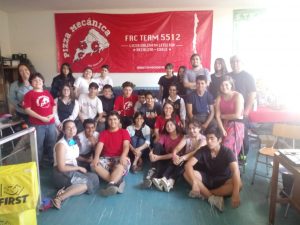
High school student participants in Fundacion Mustakis’ programs in Chile. This year, Edgerton Center staff traveled to work with the Santiago-based nonprofit on their STEM offerings, with plans to return in 2019.
MIT BLOSSOMS
BLOSSOMS embarked on two new educational initiatives in 2018: the first entailed the development of a Blended Teacher Professional Learning Program that will be used to run workshops throughout the country to guide high school science teachers in their adoption of the Next Generation Science Standards (NGSS), while the second saw the development of six online Problem-based Learning (PBL) lessons that will provide teachers with the resources, scaffolding and guidance they will need to undertake a 3-4 week PBL lesson in their classes. The TPL initiative allows Master teachers in Physics, Biology, Chemistry, Earth Science and Engineering to demonstrate via video the educational process of incorporating NGSS into daily science lessons. The PBL initiative uses six BLOSSOMS video lessons – including those in Chemistry, Biology, Math and Engineering – to serve as springboards into comprehensive Project-based Learning lessons which are designed to make teachers new to this way of teaching feel confident and comfortable giving it a try.
MIT MRSEC Science and Engineering Program for Middle School Students
The MIT MRSEC (formerly the Center for Materials Science and Engineering, or CMSE) is one of a nation-wide network of Materials Research Science and Engineering Centers sponsored by the National Science Foundation (NSF). During their summer outreach program running from 30 July through 3 August, sixteen 7th and 8th grade students and a science teacher from the Putnam Ave. Upper School in Cambridge attended a weeklong hands-on exploration of science and engineering on the MIT campus. The week’s activities included glassblowing, metal casting, building solar cells, making small dc motors, polymer demonstrations, electric circuitry, and making liquid nitrogen ice cream. 2018 was the 27th year this program has been offered.
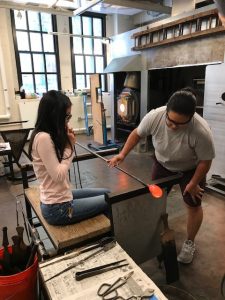
Students participating in the MRSEC summer program got to try their hand at one of MIT’s most unusual maker activities: glass-blowing.
MIT Women’s Technology Program
The MIT Women’s Technology Program (WTP) is a rigorous four-week summer academic and residential experience where female rising high school seniors from 24 U.S. states and 2 international countries explored Electrical Engineering & Computer Science (EECS) or Mechanical Engineering (ME) through hands-on classes, labs, and team-based projects. The 40 WTP-EECS students created heartbeat monitors, solar cells, capacitive-touch pianos, Hangman and Tetris games in Python, and designed and built DC motors for their final projects. The 20 WTP-ME students created posters on subjects ranging from 3D printing of houses to a search-and-recovery robotic snake to color-changing clothing, and finished the program by demonstrating five working Rube Goldberg machines in Lobby 13.
Teaching Systems Lab
TSL is pleased to report that its three MOOCs courses (Launching Innovation in Schools, Design Thinking of Leading and Learning & Envisioning the Graduate of the Future) have now impacted thousands of learners. TSL’s new program titled Innovating New Spaces for Practice and Research in Education, or INSPIRE, began this year with a group of 14 teacher educators interested in incorporating and investigating ways to enable preservice teachers and in service teachers to practice the craft of teaching throughout their careers. Finally, TSL hosted 6 public playtests, welcoming over 150 attendees to MIT Open Learning.

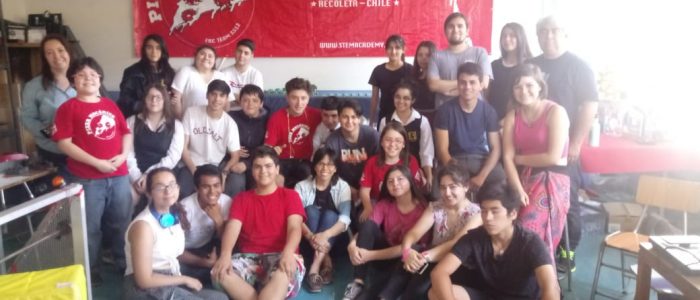
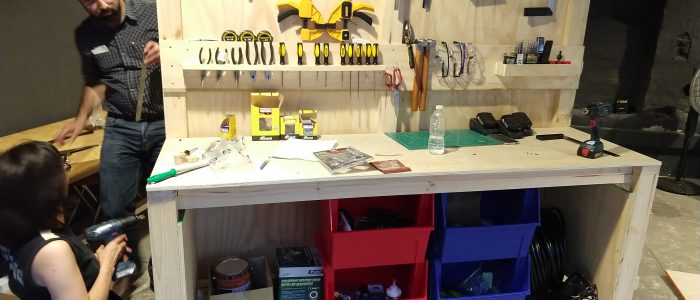
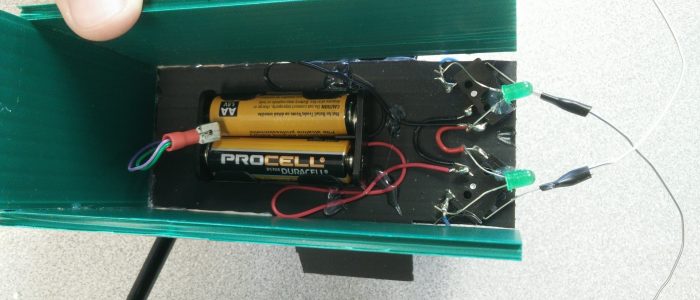
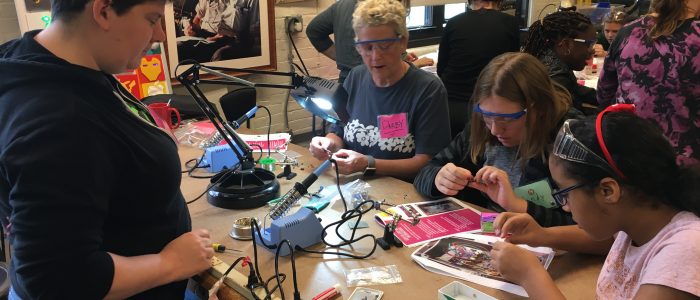
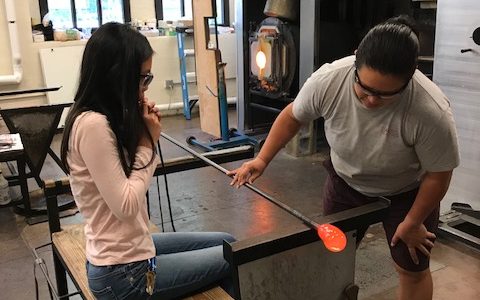
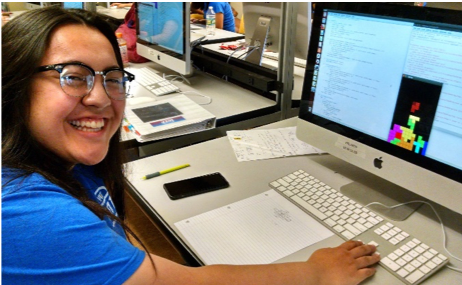
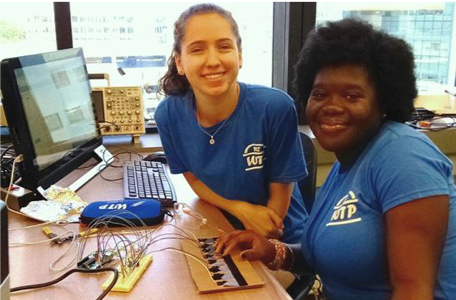
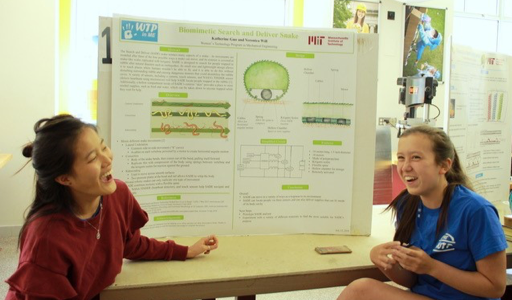
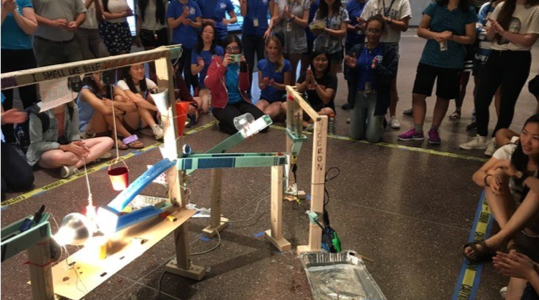
Comments are closed.